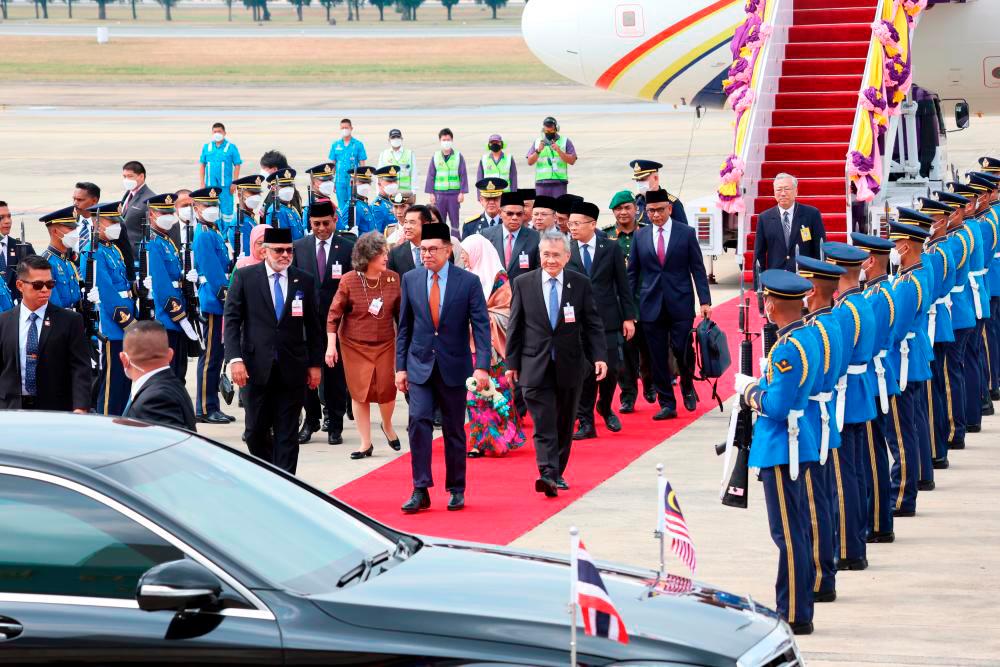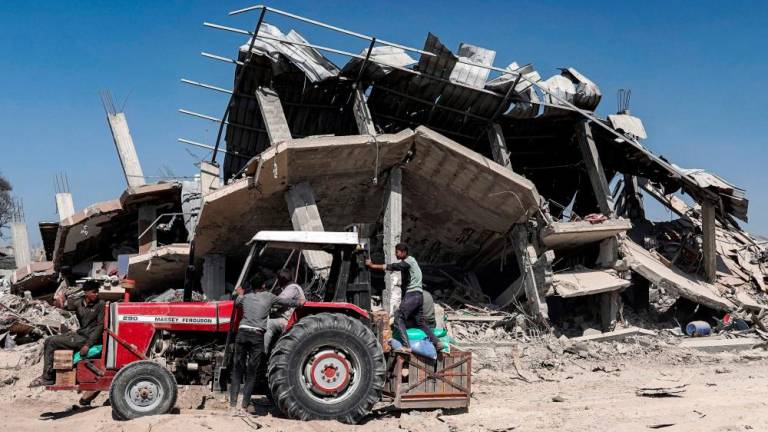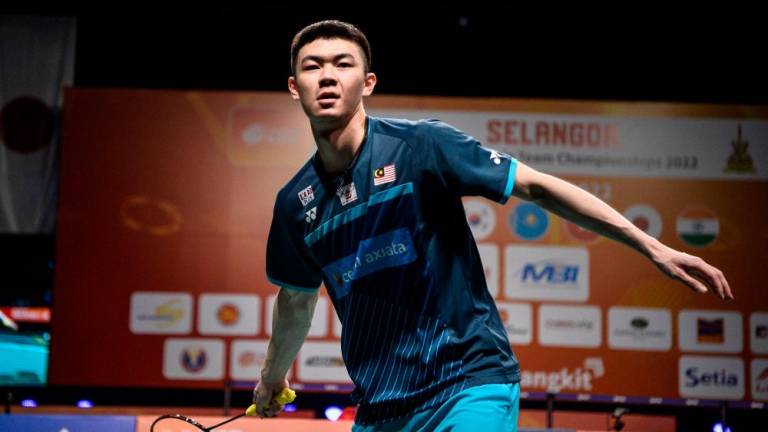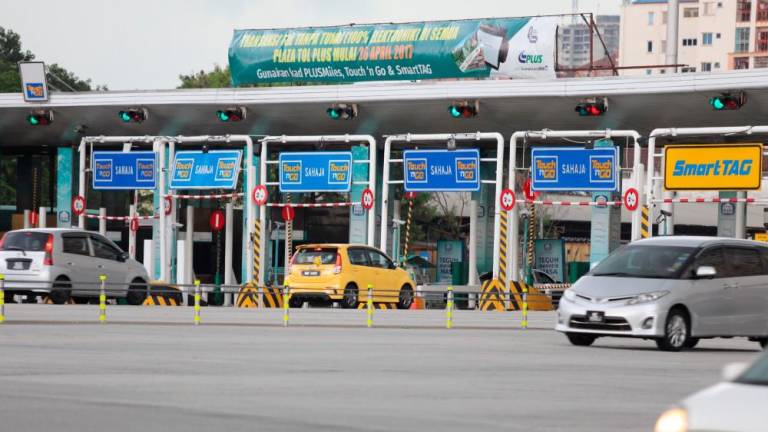PRIME MINISTER Datuk Seri Anwar Ibrahim’s visit to Thailand marks the first circle of priority for Malaysia’s foreign policy which is centred on Asean and strengthening regional partnerships. Malaysia-Thailand ties and their importance supersede the interests of the southern-Thai conflict alone and the most important aspect is the defence and security cooperation in high politics and hard power calculations.
Malaysia sees the region as increasingly interconnected, and any individual foreign policy of one country will have inevitable knock-on and ripple effects on other regional members, especially in defence and security policies, and economic and trade agenda.
Hence, it will be in the best interests to solidify these areas, to promote greater trust, interdependence, transparency, integrity and a value-based approach in strengthening regional partnerships based on principles, rules, values and good governance in line with Anwar’s credentials and motto, and will want to capitalise on historical legacies and advantages of the region in forging greater cooperation and understanding through common culture, practices, and past rich ties.
These include the Brunei-Malaysia-Indonesia shared roots, which are reflected in his priority of early first engagements, followed by Singapore and Thailand which share immediate concerns and interlinked economic and trade affiliations that will affect the very core of the fundamentals of the Malaysian economy and people-to-people relations.
We need high-impact, future-driven and high-quality economic drivers of growth, particularly in the digital economy, green energy, knowledge-based economic growth, high technological advancement, futuristic and sustainable resource security, food security, resilient supply chain and empowering the SMEs as the main economic growth engine.
This also includes the need to build on a platform and foundation of greater socio-economic linkages in a healthy and respectful way, based on greater cohesion and people-to-people appreciation and bonding that will pave the way for better economic cooperation and spillover effects to other sectors, particularly education and tourism.
Issue of environmental concerns, climate change, migrant workers and efforts to draw talents and expertise, all remain crucial factors in Malaysia’s foreign policy agenda that make up the second tier and low politics spectrum, with the hope that it will also provide a multiplier effect on other sectors of cooperation.
There is the defence and security issue, with strengthening of joint geopolitical clout and advantage by capitalising on shared strength and higher impact of joint and common objectives and purposes.
Malaysia also hoped to capitalise on renewed credentials and strength of neighbouring countries particularly Indonesia and Vietnam, in being the next regional and global engines of economic growth and being home to future investments of top industrial and technological giants, including Apple and other semiconductor companies.
Although the spirit of competition is still high and internal sentiments in Malaysia have been calling out for greater reforms in Malaysia’s core economic vision and fundamentals to avoid falling deeper behind Indonesia and Vietnam, Malaysia still views both as important and equal partners in having a healthy economic interdependence and source of positive flow of investment and talents that will have mutually inclusive returns and win-win economic benefits.
In the defence and security front, having a renewed and stronger affiliation with one another creates better and more forceful defensive and deterrent capacities, as all share common risks and threats, especially in managing China’s continuous belligerent activities in the region, especially in the South China Sea.
These new engagements by Anwar in Indonesia, Brunei and Thailand, all show the same trend and indicators of his vision to build greater trust and confidence and to capitalise on shared challenges and strength to build on new regional agenda-setting and influence.
This will include Vietnam and the need to have greater cooperation in economic development and joint security support.
As Thailand remains predominantly under the basis of a safe player in foreign policy in not practising high-stakes play in disputed and sensitive areas, its position on the South China Sea and other disputed areas has been low-key, subdued and under the radar, as it shares the same trap and position as Malaysia, in seeing and depending on China for several key parameters.
Most importantly, geopolitical agenda setting remains paramount and Malaysia will seek new ventures to work closely with Thailand on connectivity and larger transport linkages, including public and trade routes, and closer ties in defence and security arrangements.
Malaysia realises that Thailand is nearing the orbit of Laos and Cambodia in the sphere of being under the influence of China, in terms of actions and reactions and potential of escalation.
The importance of Thailand in providing joint security deterrence for non-conventional threats remains crucial, but the larger picture is still with conventional threats, especially from China. Malaysia will need the buy-in and support from Thailand in facing tensions in the South China Sea and Thailand remains a crucial tiebreaker in the China factor, as the Chinese military grip in Cambodia has been entrenched with Ream Naval Base port and other significant support fronts for China.
Thailand has been a close partner of the US for decades, with greater volumes of security and military partnerships and exchanges.
Malaysia will need to ensure that Thailand plays its part, which has always seen Thailand being able to weather through the turbulent centuries with its sovereignty intact.
Bangkok has always managed to serve both as a buffer and a strong deterrence capacity both in conflict prevention mechanisms and in hard power potential and calculations.
The strategic importance of Bangkok remains higher now in the South China Sea and in the Andaman and the Nicobar Island Chain linking up to the entrance of the Straits of Malacca and the Indian Ocean, with them being the emerging second front for Sino-US rivalry.
Of all the conventional priorities on strengthening diplomatic and economic ties, food security remains an important venture, along with the joint advancement of SMEs, digital and green energy, and economy and other areas in low politics that will also contribute to greater trust and cooperation in areas of high politics.
The southern conflict and insurgency have been ongoing for decades, and it is not easily resolved through goodwill or visitation alone.
It remains a historical, contextual and complicated process that goes beyond military and hard power actions alone to stem out the groups.
It involves deep-rooted sentiments, grassroots appeal and the deep help affiliation and attachment of the people, the different factions and the hierarchy of the groups.
Malaysia-Thailand ties are always defined by economic integration and spillover, defence and security and the long-rooted southern conflict, as any implication from the conflict will impact Malaysia directly.
Malaysia will continue to play a key and direct role, as it involves the expertise and capacity of counterinsurgency, counterterrorism, deradicalisation and other security capacity advantages held by Malaysia, including past experience and successes in mediating roles. More importantly, Malaysia is needed as a key mediator as it remains a Muslim nation that has the resonance, religious authority and respect that are required in order to play as a mediator.
Malaysia needs to succeed in bringing predictable stability as the least expected, as any flare-up or worsening in conflict will increase cross-border implications, although Malaysian security forces and border control, including counter-terrorism prevention actions, are among the best in the region.
Socio-economic fallout will also affect Malaysia, and there is a need to prevent the zone from being used as a pretext for external extremist groups to take hold and be used as a basis. The new Malaysian chief facilitator Tan Sri Zulkifli Zainal Abidin would bring a fresh perspective, expertise and experience.
Anwar would play a stronger role in the peace process following his expertise and longstanding connection with people in the southern provinces.
He has good ties with local leaders, including the local thought leaders, but will use his clout and customary respectful position as the prime minister to push things through in capitalising on the local leaders’ support and respect.
Thai Prime Minister Prayuth Chan-ocha will also want to be seen as having a greater role and legacy in the peace process, signalling his legacy and contribution.
Thailand remains a crucial strategic partner for Malaysia and the openings remain bullish on greater returns to both sides, especially in the realm of geopolitical and security settings, should both cherish and preserve the historical record and returns of smart and wise manoeuvre of geostrategic calculations in managing external powers and in maintaining the foresight and leverage on internal and joint strength and capacities.
Comments: letters@thesundaily.com













